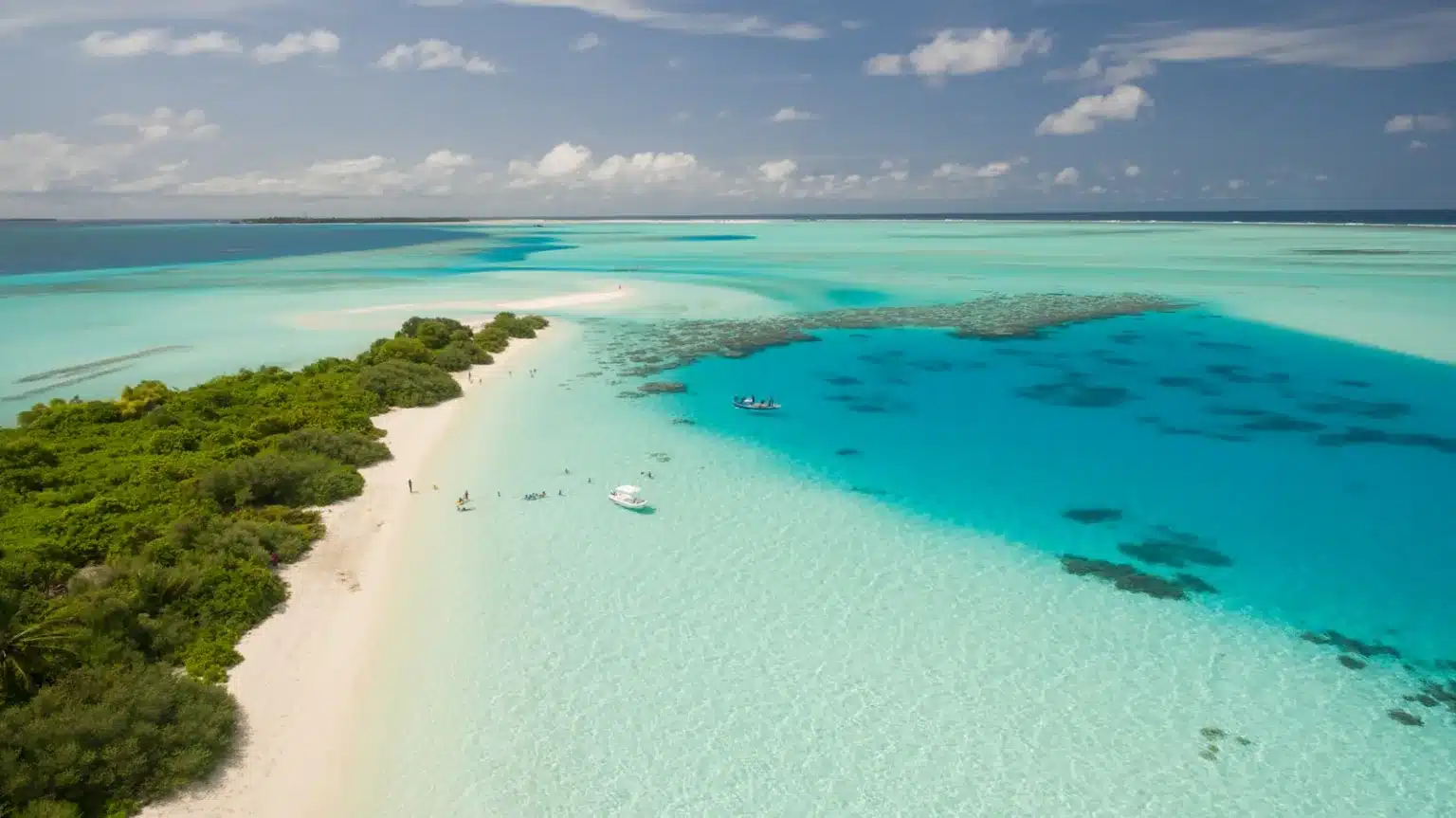The popularity of pursuing an MBBS in Caribbean has surged since 2016. This trend emerged as Indian students, finding it increasingly difficult to secure admission to US medical schools, began exploring alternative pathways. Caribbean medical schools present an attractive option for these students, offering a potential route to US medical practice. However, this option comes with its own set of challenges.
There are a few medical schools across the Caribbean islands that prospective students can consider. When choosing a medical school in the Caribbean, it is essential to evaluate the reputation and cost of each institution to ensure it meets your educational and financial needs.
Watch the video below to learn about the complete Process.

MBBS in Caribbean Vs MBBS in India
Med Schools in Caribbean follow a different education system than Indian system of Medical education. Refer to the table below to understand the critical differences between MBBS in India and MBBS in Caribbean on a critical parameter.
| Parameter | India | Caribbean islands |
|---|---|---|
| Med Schools | 706 | 31 |
| College Type | Pub & Pvt | Pvt |
| MBBS seats | 1.04 Lacs | 3500+ |
| Tuition Fee for the course | Pub 1-3 Lac , Pvt 60 Lac to 1.5 Cr | 1 – 3 Cr |
| Duration | 4.5+1 Yr. | 5 Yrs. |
| Infrastructure | Good to Below Avg | Good to Great |
| Degree Awarded | MBBS | MD |
| Medium of Instruction | English | English |
| Study Pattern | Pre-1 Yr. Para 1.5 Yr. Clinical 2 Yr. | Pre 1 Yr. Para -2 Yr. Clinical 2 Yr. |
| Internship | 1 Year | 2 Years |
| Subjects in MBBS | 19 Subjects | 40+ Subjects |
Why Study Medicine in the Caribbean?

Studying Medicine in the Caribbean to get international exposure and a pathway to enter the US healthcare is a good idea. A few benefits of studying Medicine in the Caribbean are listed below:
Multiple Intake Options to start your Medicine as Some Caribbean Medical Schools offer rolling admissions Easy entry to Med School compared to the US and Canada.
No Entrance Exam: Like many Caribbean Med Schools, don’t ask for the MCAT, UCAT or BMAT Scores.
Shorter Duration of the Program for International Students in comparison to the Actual US. Program, an Indian Student can start their Medicine just after 10+2 and complete 5 Years of BS/MD program in the Caribbean cum US. and then begin their residency program in the US.
The cost of an MD is lower than that of the US. Private medical schools, which are approx. 3.5 Lacs USD, which is not affordable for many. Caribbean, you can do the same program from 1.5 Lacs USD onward. Moreover, the cost of living is also significantly lower in the Caribbean than in the US
Scholarship opportunities help students who need financial assistance to complete the program.
Challenge to Studying Medicine at Caribbean

Studying Medicine in Caribbean Schools is not a good experience for many; only some medical schools in the Caribbean are worth studying. Many students, after completing Basic Science (BS) from Caribbean Med schools, face rejection from schools in the US or Canada, and the reasons are
Lack of Quality Education: All Caribbean medical schools do not offer the Quality of education you are expecting from them; this is because of the shortage of faculties; when the student’s enrolment in any Caribbean Med Univ drops, they start removing the faculties to save the cost which leads to poor Quality of education.
Accreditation: This is the biggest problem in medical schools in the Caribbean, as most medical schools’ status is either provision / withdrawal / not approved. You can check this on the CAAM-HP website.
Poor Residency Match: Many Caribbean Med Schools publish their USMLE Passing ratio, not the Residency match ratio, to mislead the students. Passing USMLE is good enough to secure your clinical rotations in the US. In contrast, Residency matches ensure your Medical PG in USA, your ultimate goal to enrol in a Caribbean Med School! The Residency match ratio is 15- 20% for most Caribbean Med Schools except for top-ranked Caribbean Med Schools. Suppose you are admitted to any Caribbean Med School except the few Best Med Schools in the Caribbean.
In that case, you may pass the USMLE exam with an average score and not be able to match for the residency. It means the door to practice in the US is closed. The only option for you is to stay & practice on that particular Caribbean island, where there is hardly any requirement for a doctor as they are at par with very small towns in India. You land up nowhere after spending 5 precious years of your life and Crores of hard-earned money.
Lack of Clinical exposure: All Caribbean islands are tiny in size and Population, which leads to minimal opportunity for patient interaction. Most Caribbean countries have hospitals with I.PD patient beds of 20-100, like nursing homes in India. It means hardly any exposure to clinical in the Caribbean.
Non-recognition of the Caribbean MD program in India
The biggest problem for Indians planning to study in Caribbean Med Schools is the Non-Recognition of MBBS from the Caribbean in India by NMC as it violates the NMC rule for MBBS Abroad due to studying in two campuses and duration is less than the 5-1/2 year. After completing an MD from Caribbean Med School, You cannot practice in India.
So, pick either of the top medical schools in the Caribbean (Budget of 1.8 Cr+ ) or consider something other than the Caribbean Med Schools. Explore alternative options in a 1 Cr budget in Europe.
Requirement to get into Caribbean Med School
The entrance requirements for Caribbean medical schools are comparatively more flexible than Medicine programs in the US. These schools typically seek similar application components as those in the US and Canada but lower minimum score prerequisites for GPA.
Standard Caribbean medical school requirements commonly include:
- Completing an undergraduate or Bachelor’s degree in Physics, Mathematics, Chemistry, and Biology.
- Minimum GPA of 3.0.
- Submission of two Letters of Recommendation (LoR).
- Personal statement.
- Successful completion of a personal interview.
- MCAT/UKCAT/GAMSAT or other standardized test scores
- English language proficiency score (Minimum 7 overall, Minimum 6.5 in each section)
Only Top Ranked Med Schools in the Caribbean seek this
Top Medical Schools in the Caribbean
Though there are 88 Med Schools in the Caribbean islands, only a few are recognized for their Quality of education; you can consider the Med Schools below as the Best Caribbean Med Schools
- St. George’s University, Grenada (SGU)
- SABA University, Saba
- American University of Antigua College of Medicine, Antigua (AUA)
- St. Mathews University, Cayman Islands
- Medical University of Americas, Nevis (MUA)
- American University of Barbados, Barbados (AUB)
- Ross University, Barbados
- American University of the Caribbean School of Medicine, St Maarten (AUC)
1. St. George’s University School of Medicine, Grenada
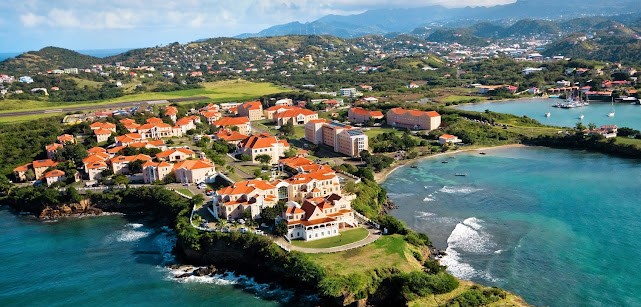
Established in 1976 as an independent institution, it has contributed highly trained doctors globally for over 45 years. Pioneering international medical education, in 2023, more than 1000 SGU Graduates, the highest in the world, from a non-Mainland US Campus were matched for US residencies. Over 20,000 physicians from over 150 countries have emerged from SGU with a unique opportunity to begin medical education in Grenada or the U.K. and complete clinical rotations in 80+ affiliated hospitals across the US, Canada and the U.K.
The SGU School of Medicine, Grenada offers a 4-year Doctor of Medicine degree for Bachelor’s degree holders. It provides 5, 6, and 7 year Medical Degree Pathways for 10-2 Students with insufficient grades as foundation classes. Noteworthy facts about St. George’s University include being the US’s largest licensed physician provider. SGU admits students on a rolling basis, with classes commencing in August, January, and April, and also offers a U.K. Pathway starting in January or September. Indian Students prefer 1 Year Program in India and subsequent years in US or UK.
2. SABA University of Medicine, Saba
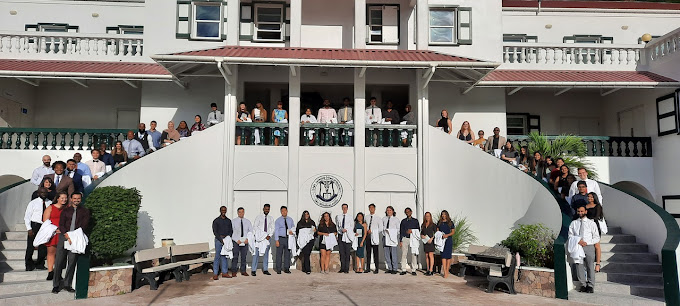
SABA University School of Medicine, a renowned global medical institution boasting over three decades of prominence, educates outstanding medical practitioners. Beginning with a twenty-month tenure on the tranquil and unspoiled Caribbean island of Saba, students progress to clinical training at esteemed teaching hospitals in the United States and Canada. Embrace membership in a welcoming and diverse community, receive tailored guidance within our deliberately small class environments, and avail yourself of an array of resources including mentorship, counselling, wellness programs, and academic assistance facilitated by our Student Support Services and Learning Centre

3. Ross University School of Medicine
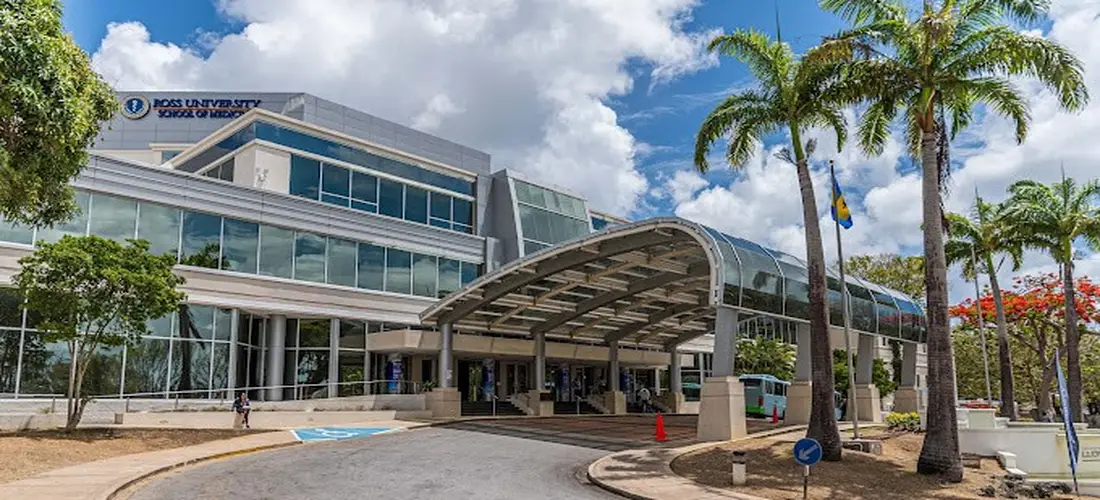
The curriculum at Ross Medical School aims to equip its graduates for professional practice in both the U.S. and Canada. Students at Ross undergo a comprehensive medical education, engaging in early practical experiences within the Barbados community before proceeding to clinical rotations and residency programs in the U.S. Those seeking to acquire the practical skills and knowledge necessary to create a significant healthcare difference in the U.S., Canada, or overseas will find Ross as the ideal destination to learn the practice of medicine.
4. American University of the Caribbean School of Medicine
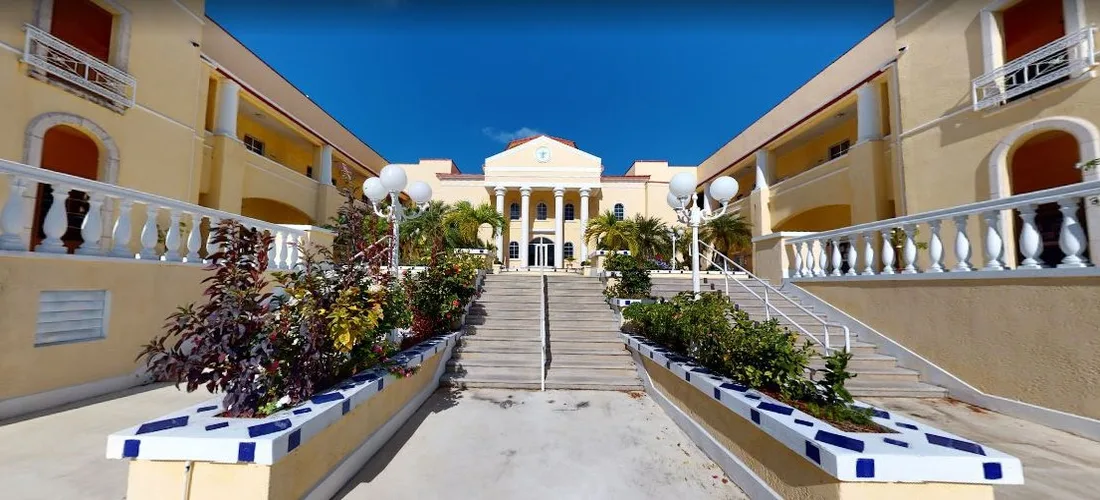
Graduates of AUC, St Maarten emerge equipped with empathy and skills to cater to diverse communities. After completing the medical sciences curriculum in St. Maarten, students undertake clinical training in the US or the UK. AUC has facilitated the journey of over 7,500 graduates practising in various specialities across the United States, Canada and the U.K.
The AUC program spans 4 years, encompassing medical sciences in St. Maarten or the United Kingdom campus and USMLE for 2 years, followed by clinical sciences, including clinical rotations in the US and U.K., alongside USMLE 2, also spanning 2 years.
5. American University of Antigua College of Medicine
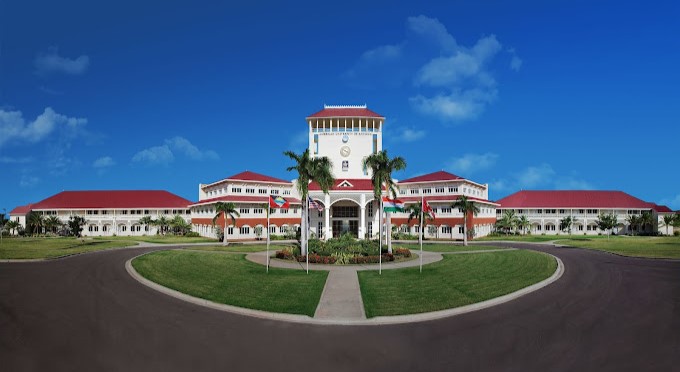
Graduates from AUA Antigua can get licensure in all 50 US states, Canada, and the UK. AUA boasts a curriculum emphasizing small class sizes with a 10:1 student-to-faculty ratio during the initial academic period, transitioning to a 20:1 ratio for the remaining Pre-Clinical Sciences curriculum. Its educational structure is on par with the US, Canada & the UK while maintaining a nurturing and supportive atmosphere. The AUA School facilitates clinical placements in the US, Canada, the UK, and beyond. Also, it offers the option to start Basic Science studies at AUA and transfer to Warwick Medical School, USA, for the degree.
AUA Antigua follows an innovative 4.5-year M.D. program covering:
- Pre-Clinical Sciences on the AUA campus in Antigua – 2 years.
- Pre-Clinical Science Integrated Course intersession at the AUA campus in Antigua – 13 weeks, followed by the USMLE Step I examination.
- Clinical Sciences comprising 84 weeks of Core and Electives clinical clerkships at affiliated teaching hospitals in the US. Additionally, eligible students can pursue elective rotations in the US, Canada & the UK.
Cost of Studying Medicine in Caribbean Med School
Medical school education comes at a significant cost. In 2023, the average expenses for public US medical schools hit approximately $250,000, while private US medical schools surged to about $330,000. Interestingly, the tuition fees at top Caribbean medical schools can match those of US medical schools. Cost of MBBS in Caribbean in INR is approx. 1 Cr to 3 Cr for the complete course for Indian Students.
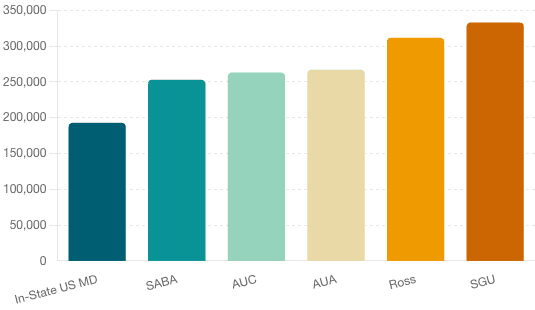
Financing of your Tuition Fee
To finance their education, many students resort to federal student loans. Yet, only six Caribbean medical schools have approval to participate in the federal loan program.
- St George’s University School of Medicine (SGU Grenada)
- SABA University of Medicine, Saba
- American University of the Caribbean School of Medicine (AUC St Maarten)
- Ross University School of Medicine
- American University of Antigua (AUA Antigua)
- Medical University of the Americas
- St. Matthew’s University School of Medicine
However, you should contact individual Caribbean medical Schools you are considering to ensure that the medical program is eligible and that you can participate in the loan program. You must also check their accreditation on the National Committee on Foreign Medical Education and Accreditation (NCFME).
Accreditation of Caribbean Medicine program in the US
Accrediting agencies possess WFME Recognition Status: the Caribbean Accreditation Authority for Education in Medicine and Other Health Professions, popularly known as CAAM-HP, the Accreditation Commission on Colleges of Medicine (ACCM), and the Accreditation Organisation of the Netherlands and Flanders. Verifying the CAAM-HP accreditation status of the medical School you plan to attend is imperative. This accreditation aspect is a significant concern in Caribbean medical schools, as several schools’ statuses remain either provisional, withdrawn, or unapproved.
Residency Match in US after MBBS in Caribbean
Tightly linked to the affiliated hospitals is the residency match rate. As per the National Resident Matching Program, in 2023, 58% of international medical school graduates successfully secured PGY-1 (postgraduate year one) positions, marking the highest match rate in almost three decades.
Nonetheless, these statistics are majorly contributed by top Med Schools in the Caribbean. Some institutions exhibit lower match rates, while others boast rates on par with those in the United States. On average, 94% of US medical school graduates consistently secure residency program placements. Ross University stands slightly above this US rate, with an impressive 95%, and SGU touches 93% of its students matching into a program on their initial attempt.
Subjects in Medicine Program in Caribbean
The Pre-Medical Program is crafted to furnish students with a robust foundational background essential for navigating the demanding coursework within the BS course. Spanning three trimesters, each lasting 16 weeks, this program caters to high school graduates or college students possessing fewer than 90 credit hours, aspiring to meet the requirement for Admission into a medical school’s M.D. Program.
This three-trimester program allows entry in each trimester, contingent upon academic qualifications. It encompasses undergraduate-level sciences and laboratory work, offering coursework equivalent to post-high school standards in Biology, General Chemistry, Organic Chemistry, Physics, English, and Mathematics. These courses align with the overarching objectives of a pre-professional education.
PRE-MEDICAL SCIENCE COURSES
| Trimester | Course Name | Credits |
| I | ||
| Foundation Biology | 12 | |
| General Chemistry | 10 | |
| Integrated Mathematics | 8 | |
| II | Organic Chemistry I | 12 |
| Human Biology | 10 | |
| Physics I | 10 | |
| III | Organic Chemistry II | 12 |
| English Composition | 8 | |
| Physics II | 10 |
BASIC SCIENCE COURSES
| Trimester | Course Name | Credits |
| I | Gross Anatomy & Embryology | 16 |
| Histology | 10 | |
| Ethics & Humanity | 2 | |
| Introduction to Clinical Medicine I | 2 | |
| II | Biochemistry & Genetics | 14 |
| Physiology | 10 | |
| Biostatistics & Epidemiology | 4 | |
| Introduction to Clinical Medicine II | 2 | |
| III | Pathology 1 | 10 |
| Pharmacology 1 | 10 | |
| Neuroscience | 6 | |
| Behavioral Science | 6 | |
| Introduction to Clinical Medicine III | 2 | |
| IV | Pathology 2 | 10 |
| Pharmacology 2 | 10 | |
| Microbiology & Immunology | 10 | |
| Introduction to Clinical Medicine IV | 2 | |
| PRE-CLINICAL PROGRAM | ||
| V | Comprehensive Basic Science Course | 10 |
Clinical Rotations in Affiliated Hospitals in the US
A student’s clinical training during medical School holds significant weight in securing a residency placement. For international medical schools, it’s crucial to evaluate the affiliations with US hospitals, particularly in some Caribbean medical schools.
The Clinical Medicine Training Program (CMTP) spans six trimesters across two years.
Comprising 72 weeks, the CMTP involves Clinical Rotations: 48 weeks of Core & 24 weeks of Elective sessions, which include clinical lectures, case presentations, break-through seminars, and more. Additionally, it incorporates Clinical Subject Shelf Exam Prep Courses tailored for NBME and USMLE, along with ERAS Application Guides.
All 48 weeks allocated for core rotations are mandatory. Students select their elective courses, amounting to 24 weeks, from provided options or requested individual rotations, subject to approval by the Dean of Clinical Medicine.
The schedules for core rotations are determined by the Clinical Rotations Coordinator upon graduating and receiving the Certificate of the Basic Sciences, confirming the completion of all B.S. courses and passing the necessary Board exams.
To commence Clinical Rotations in US Hospitals, you need to complete the following steps:
- Complete Basic Science
- Pass CBSE NBME
- Pass USMLE Step 1
- Start the rotation.
The Clinical Program spans six trimesters, encompassing a total of 72 weeks. While all 48 core rotations are obligatory, students can select 24 weeks’ worth of elective courses.
This outline does not specify the course sequence. The Clinical Coordinator decides the scheduling of core rotations upon students’ Admission into the Clinical Program. Typically, students complete their core rotations before undertaking additional requirements and elective courses.
Core Rotation ( 48 Week)
| Trimester 6-9 | |
| Course Name | Weeks |
| Internal Medicine | 12 |
| Surgery | 12 |
| Paediatrics | 6 |
| Obstetrics and Gynecology | 6 |
| Family Practice | 6 |
| Psychiatry | 6 |
Elective Rotation ( 24 Week)
| Trimester 10-11 | |
| Allergy & Immunology | Neurology |
| Ambulatory Care | Neuropathology |
| Anesthesiology | Oncology |
| Cardiology | Ophthalmology |
| Critical Care | Orthopaedic Surgery |
| Cytology | Pathology |
| Dermatology | Plastic Surgery |
| Emergency Medicine | Preventive Medicine |
| Endocrinology and Metabolism | Psychiatry |
| Family Practice | Public Care / Health Care Systems |
| Gastroenterology | Pulmonary Disease |
| Geriatrics | Radiology |
| Gerontology | Rheumatology |
| Haematology | Trauma Surgery |
Studying MBBS in the Caribbean offers an alternative pathway for students aiming to practice medicine in the US. While this route has its merits, including lower costs and multiple intake options, it’s essential to consider the challenges such as accreditation issues, varying quality of education, and limited clinical exposure. The ultimate goal of securing a residency match in the US hinges significantly on the reputation and resources of the chosen Caribbean medical school. Therefore, thorough research and careful selection are crucial for ensuring a successful medical career.
For Indian students seeking the right advice on pursuing an MBBS in the Caribbean with a pathway to the US, consult Divine Education Abroad Consultancy. Our experts provide tailored guidance to help you navigate the complexities of medical education and secure admission to the best institutions. Contact Divine Education Abroad Consultancy today to start your journey towards a successful medical career in the US.
Why should Indian students consider studying MBBS in the Caribbean?
Studying MBBS in the Caribbean offers an alternative pathway to practice medicine in the US. Caribbean medical schools often have more flexible admission requirements, lower tuition costs compared to US medical schools, and shorter program durations. These schools also provide opportunities for clinical rotations in the US, which can be advantageous for students aiming to secure US residencies.
What are the main challenges of studying medicine in the Caribbean?
Some of the challenges include varying quality of education, accreditation issues, and limited clinical exposure due to the small population and hospital sizes in the Caribbean islands. Additionally, not all Caribbean medical schools have strong residency match rates in the US, which can impact a graduate’s ability to practice in the US.
How do Caribbean medical schools compare to Indian medical schools?
Caribbean medical schools offer a different educational system with typically shorter program durations (5 years vs. 4.5+1 years in India). They have fewer medical schools compared to India, and the tuition fees can be higher. However, Caribbean schools often provide a more direct pathway to US residencies, whereas Indian medical graduates usually need to pass additional exams like USMLE to practice in the US.
Are Caribbean medical school degrees recognized in India?
No, MBBS degrees from most Caribbean medical schools are not recognized in India by the National Medical Commission (NMC). This is primarily because these programs do not meet NMC’s criteria regarding the duration and structure of medical education.
What are the admission requirements for Caribbean medical schools?
Admission requirements typically include:
An undergraduate or Bachelor’s degree in relevant subjects (Physics, Chemistry, Biology, Mathematics).
A minimum GPA of 3.0.
Letters of Recommendation.
A personal statement.
Completion of a personal interview.
Standardized test scores (MCAT/UKCAT/GAMSAT).
English language proficiency (Minimum overall IELTS score of 7, with no band less than 6.5).
What is the cost of studying medicine in the Caribbean?
The cost of an MD program in the Caribbean ranges from approximately INR 1 crore to INR 3 crores for the entire course. This includes tuition fees and living expenses. While the cost is significant, it is generally lower than that of US medical schools.
What are the top Caribbean medical schools?
St George’s University School of Medicine (SGU Grenada)
SABA University of Medicine, Saba
American University of the Caribbean School of Medicine (AUC St Maarten)
Ross University School of Medicine
American University of Antigua (AUA Antigua)
Medical University of the Americas
St. Matthew’s University School of Medicine
How do clinical rotations work in Caribbean medical schools?
Clinical rotations in Caribbean medical schools typically occur in affiliated hospitals in the US. The Clinical Medicine Training Program (CMTP) includes 72 weeks of rotations: 48 weeks of core rotations and 24 weeks of elective rotations. Core rotations cover essential areas like Internal Medicine, Surgery, Pediatrics, and Psychiatry.
Can Caribbean medical graduates secure US residencies?
Yes, Caribbean medical graduates can secure US residencies, but the success rate varies by school. Top Caribbean medical schools like SGU, SABA, Ross, AUC and MUA have relatively high residency match rates, often comparable to US medical schools. However, graduates from lower-ranked Caribbean schools may face more challenges in securing residencies.
What financial aid options are available for Indian students in Caribbean medical schools
Financial aid options include federal student loans (for schools participating in the federal loan program), scholarships, and private or institutional loans. Students should contact the financial aid offices of their prospective schools to explore available options and eligibility criteria

